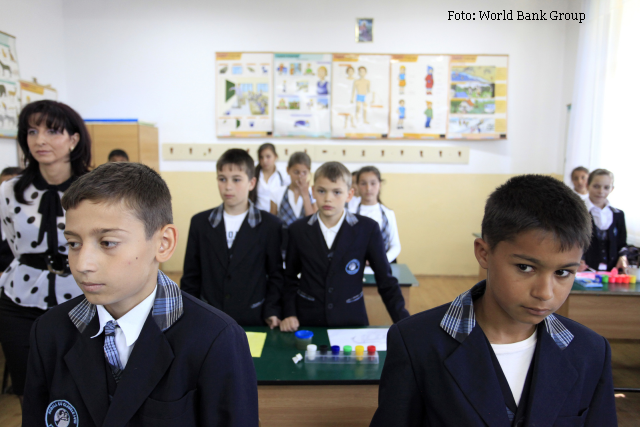The new school year in Romania
Schools seem better prepared to welcome its pupils than last year, but there are still many problems to solve

Valentin Țigău, 15.09.2014, 13:13
Some 3.2 million pupils started the 2014-2015 school year on September 15th. Just like the previous one, this school year is split into two semesters. According to the calendar, there will be 177 school days and 34 days off, adding to the big summer holiday. This year schools seem better prepared than they were last year. There are more qualified teachers, some 85% of the total teaching staff, and 90% of all school units across the country have been granted the sanitary permit.
There are some problems with regard to schoolbooks, especially for the 1st and 2nd graders, including the digital ones, whose content has been renewed. They have not reached pupils yet, because the tender for the awarding of the contract was contested, and the printing deadline was delayed. This problem has been lively debated by civil society and speculated about by opposition parties. Prime Minister Victor Ponta has asked for this issue not to be used in a populist way and has promised to take measures if errors or irregularities are found with regard to the way in which tenders were organized.
The school year starts with a number of changes in the system. Among them, a list of optional subjects has been drawn up, from architecture and chess to history of jazz, but also a new set of rules regarding conduct in school, and an educational contract stipulating parents’, teachers’ and pupils’ rights and obligations. The rules of organization and functioning of schools is a first in the Romanian educations system. It includes both provisions regarding teachers’ and pupils’ conduct, and also parents’ obligations, such as making sure their children can attend school and that they actually go to school every day, until the compulsory education cycle ends.
According to the same set of rules and regulations, pupils are not allowed to use mobile phones during classes and, of course, they are not allowed to have on them or to sell, within the school premises or outside, drugs, ethno-botanic substances, alcoholic beverages or cigarettes, or to gamble. Also, schools must conclude an educational contract with the parents or children’s legal guardians, stating the rights and obligations of both parties. Any failure to meet those obligations will be regarded as a disciplinary offence.






























